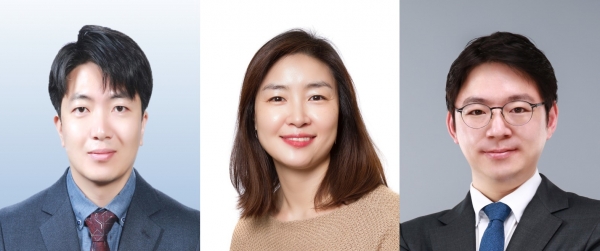
The Seo Kyung-bae Science Foundation (Chairman Seo Kyung-bae) selected Professor Noh Sung-hoon (Department of Life Science at Seoul National University), Professor Lee Joo-hyun (University of Cambridge, Wellcome-MRC Cambridgeem Cell Institute), and Professor Cho Won-ki (Department of Life Science) as new scientists in 2020. The ceremony will be held in conjunction with the first Seo Kyung-bae Science Foundation Symposium in October.
Seo Kyung-bae, chairman of AMOREPACIFIC Group, set up the Seo Kyung-bae Science Foundation in 2016 by contributing 300 billion won in his private assets. Under the vision of "Supporting Innovative Discovery of Life Sciences Researchers to Contribute to Humanity," it selects Korean up-and-coming scientists who are exploring new areas of research in life science at home and abroad every year.
The Seo Kyung-bae Science Foundation has selected 17 new scientists in the field of life sciences from 2017 to 2020, and each of them will receive up to 500 million won for five years to provide a total of 42.5 billion won in research funds.
"I have been receiving a lot of attention and love from many people for a long time," Chairman Seo Kyung-bae said. "A long-term support for the life science/biology field is the way to return the love I received to society," and once again pledged long-term support through the Seo Kyung-bae Science Foundation.
This year, the government started publicizing research proposals in January and received a total of 67 research proposals from up-and-coming scientists in the field of bioscience with less than five years of employment. A panel of judges composed of scholars from home and abroad selected the final three through a written review of the 20 proposals in the main review by July and a presentation evaluation of the 12 proposals in September, 2020.
To overcome the limitations of modern structural biology research methods, Professor Noh Sung-hoon developed a Cryo-EM-based cell and molecular imaging platform and proposed a leading topic to study cell aging and disease-causing mechanisms.
Professor Lee Joo-hyun showed a challenging and innovative study to understand the recovery mechanism of lungs damaged by chronic lung diseases by using a lung organoid model created by patients with pulmonary fibrosis.
Professor Cho Won-ki proposed a study that would allow real-time observation of the four-dimensional interactions between units of chromatin and structures in the nucleus, which change from time to time, through ultra-high resolution imaging within a single living cell nucleus. It was evaluated as a study that could greatly enhance understanding of the transcriptional process, a long-standing task of biological research.
Meanwhile, "SUHF Symphosium 2020," the first symposium of the Seo kyeong-bae Science Foundation, scheduled to be held on October 17, 2020, will be a place to share the progress and major issues of the first-term researchers who have been in their third year of funding for research this year, and to communicate about difficulties, concerns, and future research directions that can be encountered during the research process.

